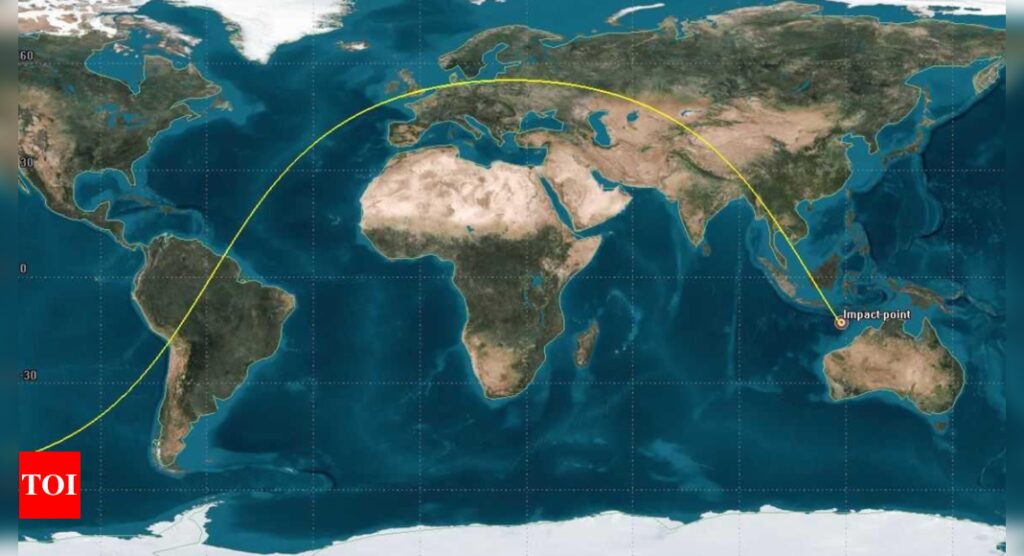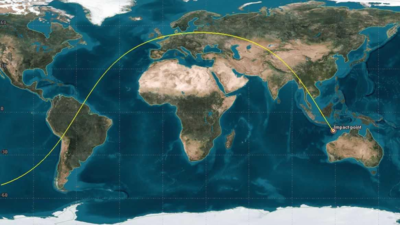Isro’s POEM-4, from SpaDeX mission, re-enters Earth’s atmosphere – The Times of India

BENGALURU: The Indian Space Research Organisation (Isro) late Friday confirmed that the PSLV Orbital Experimental Module (POEM-4) successfully re-entered Earth’s atmosphere and impacted the Indian Ocean at 2.33 UTC (8.03 IST) on April 4, 2025.
The controlled re-entry marks another achievement in Isro’s ongoing commitment to mitigate space debris and promote sustainable space operations. “The successful re-entry reaffirms Isro’s prominent role in maintaining the long-term sustainability of the outer space environment and furthers the objectives of the Debris Free Space Mission (DFSM),” Isro said.
POEM-4, the specially configured upper stage of the PSLV-C60 rocket, was launched on Dec 30, 2024, as part of the Space Docking Experiment (SpaDeX) mission. After deploying the satellites at an altitude of 475km, POEM-4 remained in a similar orbit.
Isro engineers subsequently performed engine restarts to de-orbit the module to a nearly circular orbit at 350km with a 55.2° inclination. Following this manoeuvre, the PS4 stage was passivated by venting remaining fuel to minimise risks of accidental break-up.
During its operational lifetime, POEM-4 successfully hosted 24 payloads — 14 from Isro and 10 from various non-governmental entities — all of which performed as expected and collected valuable scientific data.
Throughout its orbital mission, POEM-4 was continuously monitored by both Isro’s radar facilities and the United States Space Command (USSPACECOM). The tracking data was utilised for precise re-entry predictions.
In the final phase, Isro’s System for Safe and Sustainable Space Operations Management (IS4OM) closely monitored the module as its orbit decayed to 174 km × 165 km. Regular updates were issued as the platform approached its controlled atmospheric re-entry.
POEM-4 saw several “firsts” too. In a first, Isro sent a robotic arm that experimented with retrieving space debris, while India’s first astrobiology payloads to reach space — both developed by students, RV College of Engineering (RVCE) in Bengaluru and Amity University in Mumbai — were also part of the 24 payloads POEM carried.








